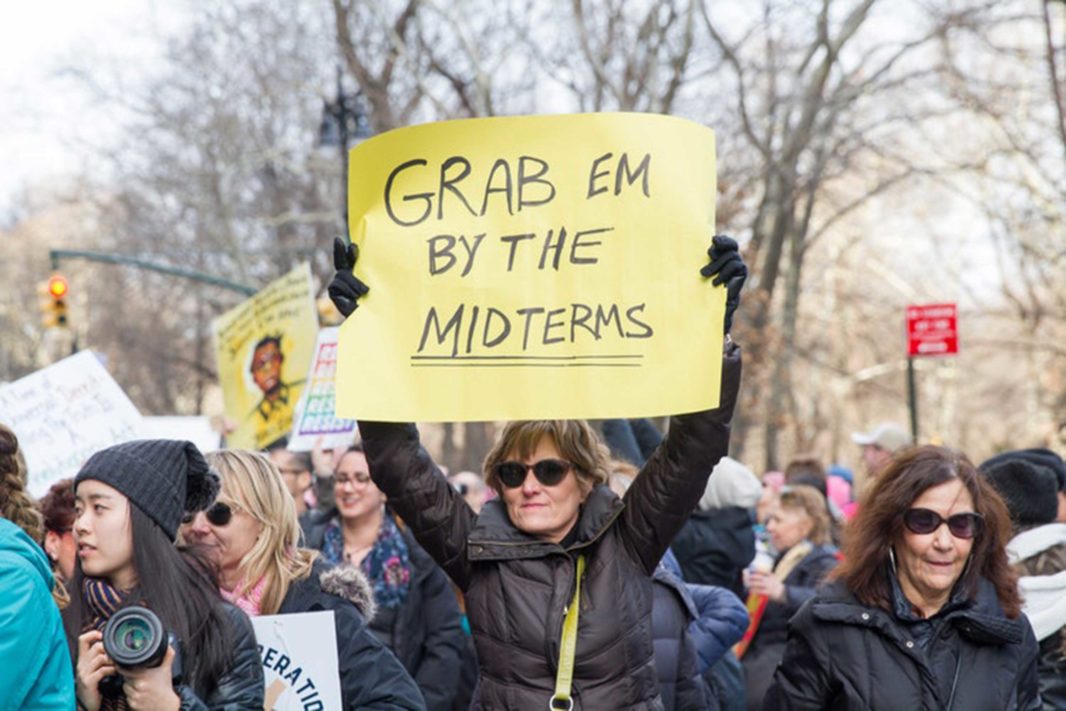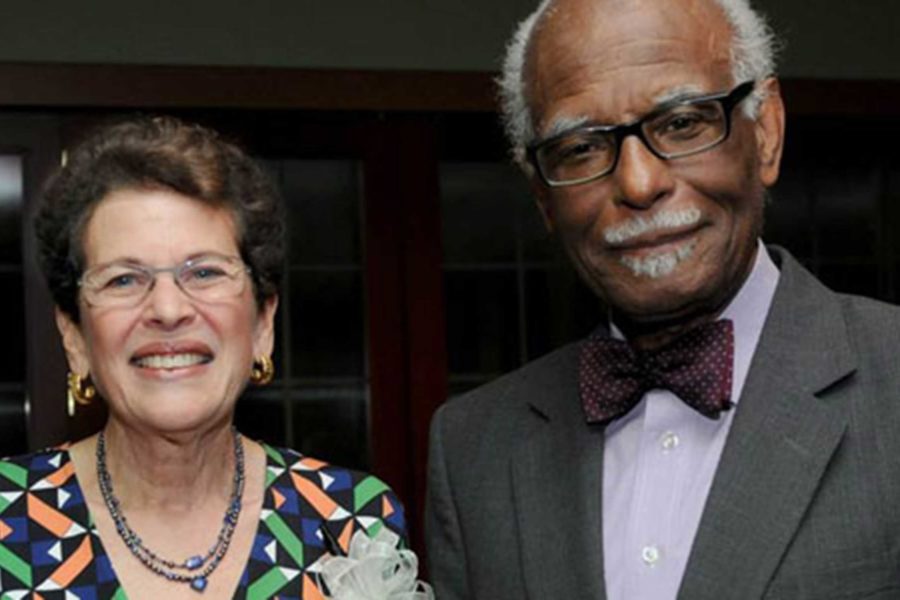Midterm elections are taking place on Tuesday, Nov. 6, in which the political landscape of Massachusetts might receive a revolutionary makeover with many key policy issues at stake and an unprecedented number of women running for public office.
In addition, Massachusetts could get a new Democratic governor, Jay Gonzalez, who is running against incumbent Republican Charlie Baker. And Rachael Rollins, who won the primary in September, could be the first woman of color elected as Suffolk County district attorney.
Exhale spoke with Ann Bookman, director of the Center for Women in Politics and Public Policy at the University of Massachusetts Boston, who outlined key figures, pivotal female candidates, and crucial policy issues that will be at the forefront during this election season. If you haven’t cast your ballot yet with Massachusetts’ early voting, here’s why you should make it to the polls on Tuesday.
Increased Gender Parity in Government
The Massachusetts legislature has been comprised of 25 percent women since 1993. The number of women legislators on Beacon Hill grew in the ‘70s, ‘80s, and ‘90s, says Bookman, but that figure has reached a standstill.
There have never been more than 13 female state senators serving in the chamber at one time, and there have never been more than 42 female House members.
In the state senate, there could be up to 8 new women legislators, totaling 16 female senators, if they are all elected. “There have never been more than 13 female state senators serving in the chamber at one time, and there have never been more than 42 female House members,” says Bookman.
Currently, there are 39 women legislators in the 153-member House and 10 women legislators in the 38-member Senate. That’s 25.6 percent representation of women in the state legislature. Women of color, in particular, are underrepresented in state government; there are only five of them at present.
According to Bookman, with 17 women running for State Senate and 66 running for State Representative, there could be 28 additional women politicians on Beacon Hill. That would increase the number of women from 25.6 percent to 39 percent.
Increased Representation of Constituents
According to Bookman, as seen with women such as New York’s 14th Congressional District candidate Alexandria Ocasio-Cortez, Connecticut’s Fifth Congressional District candidate Jahana Hayes, and Massachusetts Seventh Congressional District candidate Ayanna Pressley, ethnically diverse women are beating out their incumbent white-male counterparts because they’re reaching new voters who were previously disregarded.
Voters have felt like it didn’t matter whether they voted or not because previous candidates didn’t represent them and their concerns, but now they feel that these are women who will.
“These are women who never ran before and now they’re stepping up and stepping out,” says Bookman. “Voters have felt like it didn’t matter whether they voted or not because previous candidates didn’t represent them and their concerns, but now they feel that these are women who will.”
Bookman explains that part of what made Pressley’s campaign successful in the primary was that she targeted what others would call “unlikely voters,” predominantly working-class people of color, and knocked on their doors encouraging them to register to vote.
“The reason people were surprised at the margin Ayanna had in her victory [against incumbent Michael Capuano] was she tapped into this group of so-called unlikely voters,” says Bookman. “We know that in the 2016 presidential election, the highest margin of support that Clinton received was from African American women voters,” she adds. On the other hand, over half of white women voters supported Donald Trump.
For the primary election, Bookman volunteered to give rides to residents with mobility issues who wanted to go vote, the majority of them being older African American women. “I heard this a lot on election day,” says Bookman. “They really wanted to vote this year because they felt Ayanna was really listening to them, and if she got elected, they would truly have someone that represented them in Congress.”
At the Center for Women in Politics Public Policy, we try to talk about advancing leadership among women, but also advancing public policies that will benefit all women and their families.

Photo: Mirah Curzer
The time is now! A call for action at the Women’s March in New York City
Policy Agendas That Benefit All Women
“At the Center for Women in Politics and Public Policy, we try to talk about advancing leadership among women but also advancing public policies that will benefit all women and their families,” says Bookman. “It’s important to look at these two things together.”
The question, says Bookman, is whether these women, if elected, champion the issues that women in Massachusetts most care about. For example, will they advance issues of pay equity, paid family medical leave, and further protections for sexual assault victims in the workplace? Will more women in Congress protect reproductive rights, especially with Brett Kavanaugh on the Supreme Court threatening to reexamine Roe v. Wade?
Part of the problem of a male-dominated legislature and male-dominated U.S. Congress is that many issues important to millions of women don’t even get to the level of a bill or policy proposal.
“One thing I would anticipate is if some of these women are elected, we will see bills, maybe for the first time ever, being brought up addressing these different issues,” says Bookman. “We want to have an impact on what issues are discussed and what bills are developed because part of the problem of a male-dominated legislature and male-dominated U.S. Congress is that many issues important to millions of women don’t even get to the level of a bill or policy proposal.”
Other issues that affect mostly women in Massachusetts that Bookman says are often overlooked is child and elder caregiving. “On one side, we need more affordable and accessible childcare,” says Bookman. “We also must look at the early care and education workforce and their working conditions. This workforce is predominantly women, including many women from diverse racial and ethnic backgrounds, and their compensation is very low; the average childcare worker makes $25,000 a year. So despite the fact that these women are doing critically important work with our children, they are living at poverty level.”
Bookman says that her center will be conducting a statewide survey of the early child education workforce to measure wage and benefit levels and whether they have changed at all in the past 15 years.
“We’re concerned about the number of women who are childcare professionals and are on public benefits because they’re not making a living wage,” says Bookman.
Eldercare professionals also get compensated very little, says Bookman, and with a nationwide and even worldwide aging population, the demand for quality eldercare will only increase.
When discussing the state ballot questions with Exhale, Bookman says that Question 1, which is proposing to limit the number of patients per nurse at health care institutions, is a very complicated issue with each side making strong arguments. But the ballot question most clearly beneficial to women and transgender women, especially, is Question 3, which is proposing to continue constitutional protections of all gender identities to be accommodated in public places. “It’s in the interest of men and women to have fair and inclusive policies towards all transgender people,” says Bookman.
To find your polling location, visit vote.org or rockthevote.org.



 6 min read
6 min read


